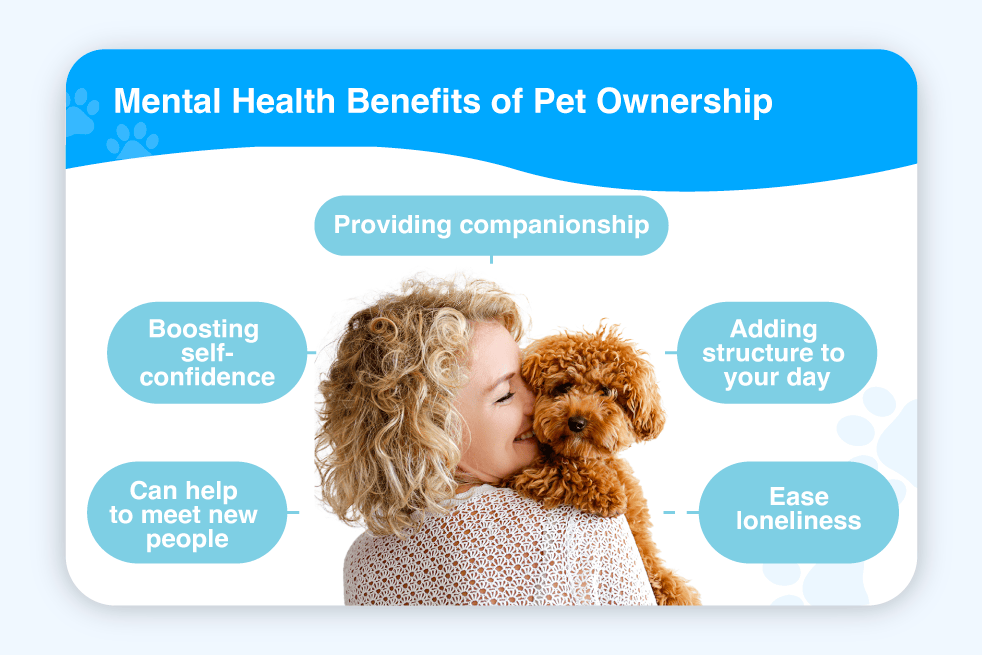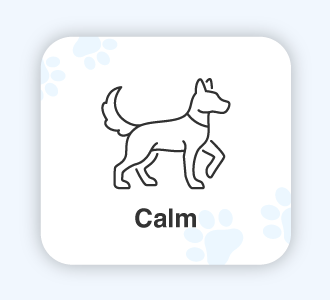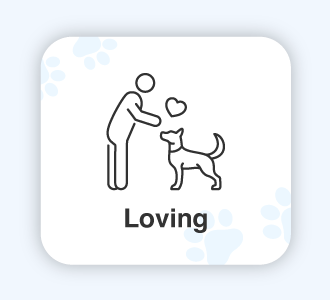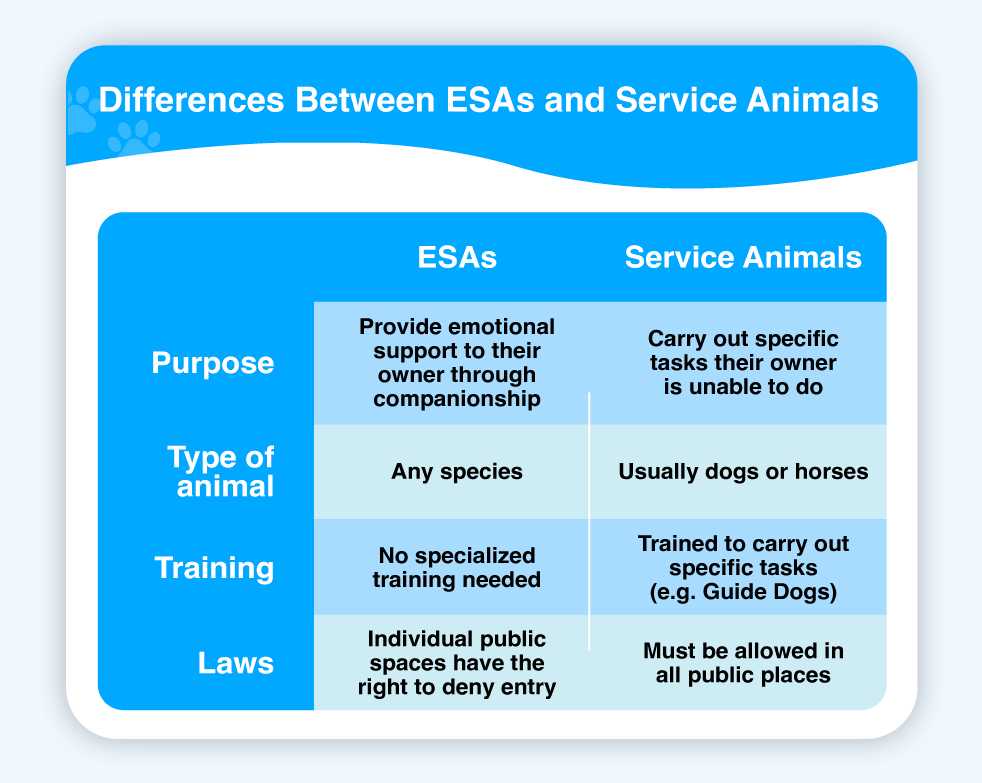
Everyone knows how joyful and rewarding the experience of being a dog parent can be. Who wouldn’t want to be greeted after a long day at work by the waggy tail and happy face of their furry friend?
Not only would a puppy make for a lovely addition to any family, but they can also help put a smile on the face of anyone looking for some emotional or moral support—whatever you’re experiencing. That’s why so many people these days are looking for emotional support animal breeds, and why Puppy Hero are so interested in helping you choose the right breed for emotional support.

Owning a dog can really benefit your mental health, which is something we all need a little help with from time to time. According to HABRI (the Human Animal Bond Research Institute), 74% of pet owners report an increase in their mental wellness, and 75% of pet owners reported an improvement in their friend’s or family member’s mental health thanks to owning a pet.
They also found that owning a pet can help alleviate stress, reduce feelings of loneliness, and even reduce the impact of anxiety and depression.
With this in mind, the experts at Puppy Hero have created this list of some of the best breeds of dogs for emotional support for those looking to buy a puppy.
If you’re looking for the best dog for emotional support, there are some traits that make breeds stand as being some of the best emotional therapy dogs.

If you’re dealing with stress in your life, you definitely won’t want to be adding to it! Though most pups are hard work when they’re young—depending on the breed—they can grow to be calm and docile companions. A calm breed can often be the best kind of dog for emotional support if you’re looking to unwind with your new furry friend.

Whether home alone, home with family, or out and about, you’ll want a friendly dog who gets along with other pets, as well as being a suitable breed to share a home with a family. Some of the best dogs for emotional support will cheer you up simply by letting you know they’re your best friend!

No one wants a standoffish pet. If you’re struggling with your emotional health, the unconditional love of a dog can be a massive mood booster, and can really help with feelings of loneliness. Sweet and loving dogs are the best for emotional support if you struggle with feeling a little down or isolated.

There are few things in life that can cheer someone up as much as spending time with a happy dog—the joy of a pup is absolutely infectious!

We all know that getting out and about from time to time is a great way to boost your mental health. If you want a dog that can support you emotionally while leaving the house, you’ll be looking for a pup that’s happy to come along for a nice walk in the park. It will be important for your dog to be friendly, and happy to meet and mix with other people and dogs.
Now you have an idea of what makes a great emotional support dog, here are some breeds we’re certain can bring a smile to your face.


With enough fur to give an Ewok a run for its money, these little fluff balls don’t just look adorable, they’re also curious, intelligent, and full of life. Often referred to as “ideal companions,” Pomeranians are considered one of the best dog breeds for ESA (Emotional Support Animal) —for good reason! Their lively personality and affectionate nature means they’ll love keeping you company, as well as keeping you on your toes!
Pomeranians do enjoy the odd walk around the block, but as they don’t require as much exercise as other breeds, they’re one of the best dogs for emotional support for an owner that can’t make it out of the house every day.

We’re going right to the opposite end of the measuring tape when it comes to our next emotional support animal breed. We are of course talking about the gentle giants of the doggy world—the Great Dane.
This breed is patient, friendly, loyal, and dependable, meaning you’ll have a buddy you can really count on. Great Danes are also excellent guard dogs thanks to their alertness. This means that if you suffer with anxiety when home alone, they could be the best breed of emotional support dog for you.
They’re also a great option for people who are keen to get out of the house more, as these big bundles of energy need a lot of exercise and socialization!

You have a couple of options to consider if your heart is set on a Corgi. You can either adopt a Cardigan Welsh Corgi, or a Pembroke Welsh Corgi. The two have very similar temperaments and personalities that make them great emotional support dogs, the only real difference being that Pembroke’s don’t have a tail!
Corgis are intelligent, loving and loyal, which makes them lovely little companions. They enjoy spending time being active with their owners, and thanks to their smarts, can pretty easily be taught a trick or two. Given that Corgis are so fond of spending time with their owners having fun and learning new things, they make a great choice for those looking to take their minds off other matters.


Golden Retrievers are definitely a breed you will have heard of! But what makes them one of the best emotional therapy dogs?
Golden retrievers are some of the friendliest, most outgoing pups out there—known for staying calm around children and other animals. This sweet breed is utterly devoted to its family, so if you choose a golden retriever, you’ll have a friend for life!

The Yorkshire Terrier may be a toy-sized dog, but it has a big personality! This breed is feisty, brave and fun, and certainly won’t be held back by its size. Much like the Corgi, Yorkshire terriers love to spend time with their dog mom or dad learning exciting new tricks and exploring outside.
They’re also hypoallergenic, making them a great breed for allergy sufferers!
While they don’t need as much exercise as, for example, a Great Dane, they do enjoy a walk around the block, and need some stimulation and play to keep them active and occupied.

The ultimate pocket-sized pal, the Chihuahua, is similar to the Yorkshire terrier in that its little body hides a larger-than-life personality!
Far from being a dainty, fragile little creature that gets carried around in the handbags of supermodels, chihuahuas are sassy, charming, and full of life. Many Chihuahuas make lovely little lap dogs, and would make a great option for someone who’s looking for a furry friend to snuggle up with after a hard day. Thanks to their small frame, they’re also a breed that’s great for those who live in an apartment.
Most of us will have interacted with service dogs at some point. From guide dogs who act as their owner’s eyes to seizure-alert dogs who warn their humans before they have a fit— dogs with jobs are a pretty impressive bunch!
Although an emotional support animal can provide invaluable support for their owners and benefit their lives hugely, there are some key differences between ESAs and service animals. Namely, their roles and legal rights.

According to the ADA, a service dog is a dog that has been specially trained to provide day-to-day assistance to people with disabilities. A service dog will have legal rights that ESAs don’t, such as full access rights to public spaces like stores, libraries, and restaurants. They are also allowed to accompany their owners on public transport, including airplanes.
Although having an ESA around is super helpful for some people, an ESA doesn’t have as many rights as a service animal. This is because they’re considered companions as opposed to a medical necessity. Though they may be allowed in some public places, at the end of the day, it’s down to the discretion of the people in charge of the property as to whether your emotional support pooch is allowed in certain places.
So, it’s always a good idea to read up on the rights an ESA has before you take the leap and get your very own emotional support pup.